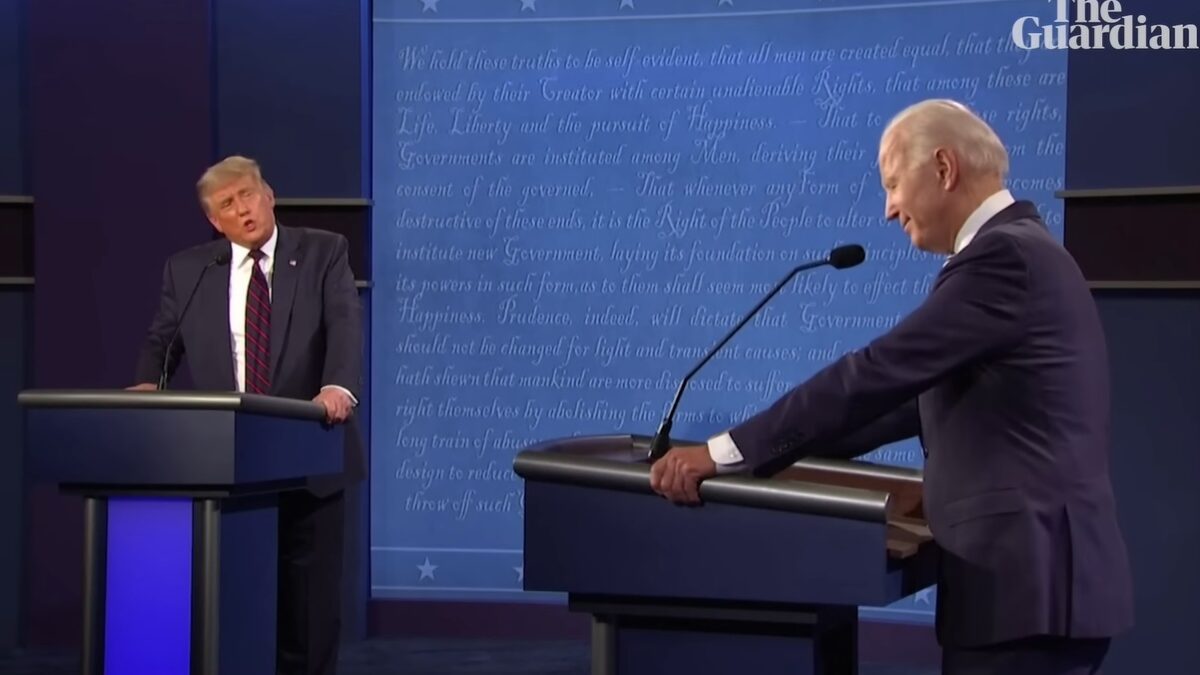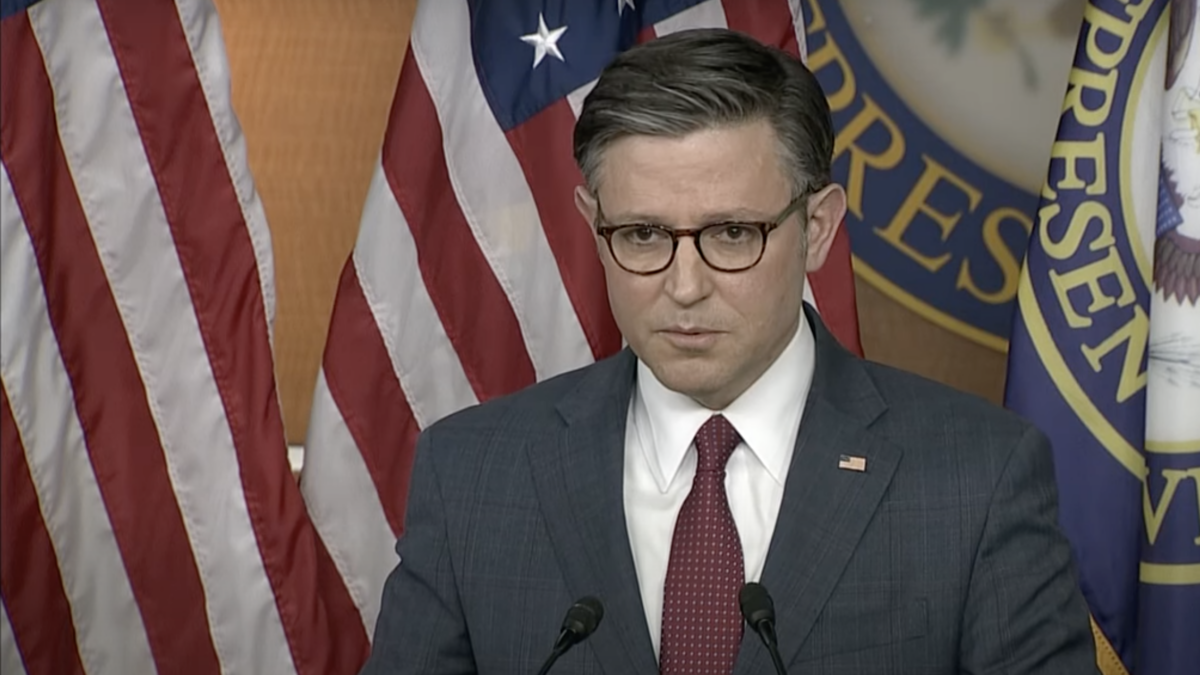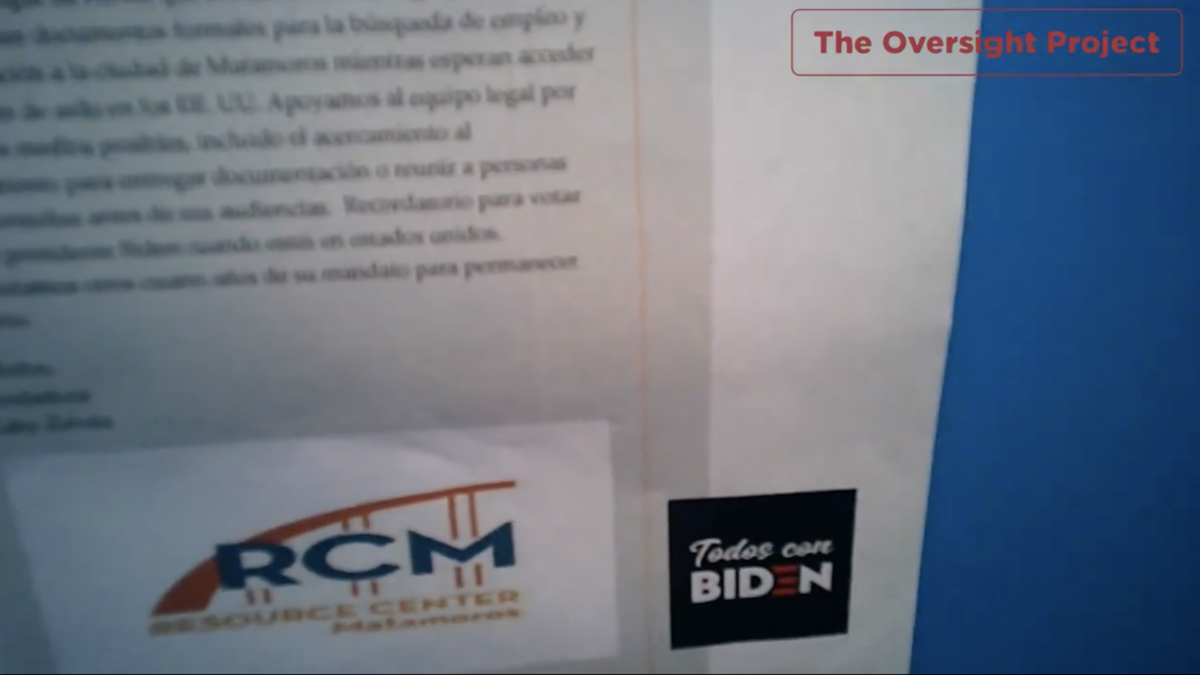
Conservatives need to rethink economics. For years, we have talked like libertarians while supporting Republicans who govern like Chamber of Commerce stooges. This is not conservative.
Among the tasks left over from the Trump administration is the development of a specifically conservative economic vision and idiom. As a candidate, Donald Trump illuminated and exploited the divide between the economic views of many Republican voters and the orthodoxies of the Republican establishment and professional conservatives.
When they controlled Congress and the presidency four years ago, Republicans’ main economic policy accomplishment was signing an establishment tax cut. This is not to say it was a bad policy; lower taxes helped juice the low unemployment and rising wages of the pre-pandemic economy. Nonetheless, there is only so much political juice to be squeezed from tax cuts—diminishing returns kick in as taxpayers no longer feel as much pain from the taxman.
Thus, Republicans need a plan beyond tax cuts. Unfortunately, Trump pursued his distinct economic approach sporadically and inconsistently. Part of the problem was that, despite Trump’s intuitive understanding that voters want the standard GOP economic line to evolve, there were few resources for his administration to draw on in developing and enacting policy. This paucity was the result of institutional conservatism having outsourced its economic theory to libertarians and its policy to (big) business.
Although the GOP does not always govern as libertarians would like, conservative leaders nonetheless tend to think and talk about economics in libertarian, rather than conservative, terms. Conservatives, especially of the think-tank and punditry class, reflexively opine about economic liberty, opportunity, and free markets. They rarely talk about using economic policy to preserve, protect, and promote the non-material goods that conservatives claim to value—family, faith, and community.
In other words, a market is a means to an end, yet conservatives tend to focus merely on the means while largely ignoring the ends. Free the market for what purpose? Such considerations are often absent from our economic discourse; when they do come up, big government is blamed for the problems.
It is true that big government often makes things worse. But conservative economic thinking must go beyond that observation. A recent dust-up involving the Heritage Foundation illustrates the problem.
Heritage complained that raising the minimum wage would raise child-care costs, which might induce some parents to stay home more instead of working. There are conservative arguments against raising the minimum wage to the (current) demand of $15 an hour. Arguing that doing this might lead parents to spend more time at home with their children is not among them.
This incident illustrates the tendency for right-wing economic theory to be captured by those who do not share conservative values. Pushing more parents out of the home and into the workforce serves corporate interests, not families. In cases such as this, the rhetoric of free markets is a cover for policy preferences that subtly tilt the playing field in favor of the big guys, and against American families.
The disastrous convergence of free-market economic rhetoric and big business reached an apogee in our dealings with China. It is impossible to trade freely or fairly compete with a slave state, but free-market ideologues pretended otherwise and ignored China’s crimes while business interests raked in the cash.
Opening our markets to the Chinese Communist Party and the genocidal slave state it runs has enriched American elites, who have been compromised to the point of ignoring, and even defending, slavery. The faith that economic policy and the power of money would lead Chinese communists to liberalize was misplaced.
Conservatives should reflect on this failure and work to develop an economic policy that protects American interests, including families and communities. This does not mean rejecting trade, which is often beneficial, but it does require that we break the hold of ideology.
Alas, a recent National Review Online article by Cameron Hilditch showed how free-market ideology has instead become an idol for some. Hilditch begins by trying to explain the economic divide on the right, which he divides between protectionists and free-traders. He notes the “paradox” of the modern economy, in which our extreme interdependence is masked by the anonymity of the market. We rely upon others for the basic necessities (and many luxuries) of life, but we are not dependent on anyone in particular; we can buy anything without knowing anyone.
Hilditch claims this puts free-trade advocates at an unfair disadvantage, insofar as most of us would prefer a more personal market that benefits those we are attached to, such as our fellow citizens. Thus, he concludes that champions of free trade “have to find a way of forging bonds of affection between American consumers and foreign producers…Only if peoples and cultures can move across borders as fluidly as capital will the global marketplace survive.”
If that flattened, homogenized world is what it takes for the global marketplace to survive, then it does not deserve to. If Hilditch wanted to make free markets repulsive to conservatives, he could hardly have done better than this portrait. Were he right about the alternatives, I would happily take my place with the protectionists, as opposed to an atomized, secular religion of humanity that would abolish all local cultures and communities in the name of market efficiency.
Fortunately, conservatives need not choose between such extremes. We can recognize that while markets are useful, they must be subordinate to the good of other, more important, interests and institutions, for we know that the market cannot provide what is most important in life. This truth is the basis for a conservative economic approach, which may be seen in a story Russell Kirk told about two economists.
When Wilhelm Roepke showed Ludwig von Mises around Geneva’s community gardens, in which families were given a bit of land to grow food. Mises observed that it was a very inefficient way of producing food. Roepke replied that it might nonetheless be an efficient way of producing human happiness.
A conservative view of economics is not based on ideologies of individual autonomy, nor will it be obsessed with market efficiency. Rather, it is concerned with genuine human flourishing, which is necessarily more than individual attainment.
Our well-being is indeed dependent on others for far more than the material necessities of life. Conservatives know that we thrive and attain our fullest humanity through relationships, and will therefore be willing to restrain market forces that are destructive of families and communities. There is nothing conservative about the unrestrained pursuit of economic efficiency, which requires a concomitant lifestyle of mobility and fluidity.
Rejecting this instability does not mean that conservatives embrace centralized planning. It does mean that the conservative case for economic freedom is based on humility and human nature, rather than individualistic ideology. Conservatives recognize that human reason is limited and human moral will is often corrupt, and therefore that the state’s capacity to order society to the good is limited. Thus, although we do not object in principle to regulating markets, the humility of acknowledging human limitation urges us to be cautious, aware that we cannot foresee all the effects and ends of our actions.
Furthermore, conservatives know there is often moral value in allowing people to conduct their own affairs. Central planning tends to violate human dignity by treating people as objects to be arranged according to some master scheme.
But it is also a violation of human dignity when, as often happens, those with market power treat people as interchangeable cogs in the economic machine. Conservatives must therefore resist the dangers of statism as well as that posed by those who believe in no good greater than individual autonomy within the market.
Conservative economic policy must be dedicated to the concrete well-being of families and communities, rather than abstract ideals of economic liberty and market efficiency. The policy ideas and infrastructure for this are being developed and debated, from Sen. Mitt Romney’s family plan to the work of the scholars and writers at the American Compass. In these efforts, they are renewing the work of conservative icons such as Kirk, who emphasized that human flourishing requires family and community, not just material abundance.
Not every proposal will, on inspection, be practicable or beneficial, and conservatives should not disdain the insights of libertarian economists nor dismiss the concerns of business interests. We may still learn from the former and we must give the latter due consideration. Nonetheless, we may hope that next time the GOP holds power in Washington, there will be a robust reservoir of conservative economic ideas for them to draw on.
The conservative movement’s economic ideas must be brought in line with the conservative task of preserving and promoting the flourishing of families and communities.









